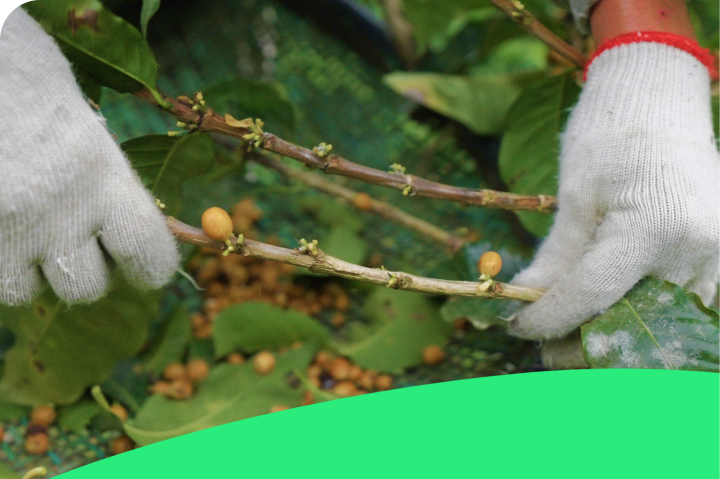O Programa Eco Invest Brasil — Mobilização Externa de Capital Privado e Proteção Monetária, uma iniciativa do Ministério da Fazenda no âmbito do Plano de Transformação Ecológica (PTE), combina instrumentos financeiros combinados, mecanismos de proteção monetária e leilões competitivos para reduzir as barreiras históricas à atração de investimento privado de longo prazo no país. Ao oferecer ferramentas que mitigam a volatilidade cambial e alavancam o capital privado através de recursos públicos catalisadores, a Eco Invest inaugura um novo paradigma nas políticas públicas — aquele em que o Estado atua como gestor de risco e facilitador de mercado, e não apenas como financiador direto.
Desde o seu lançamento em 2024, o programa foi testado e refinado através de sucessivas rodadas de leilões temáticos. O primeiro leilão serviu como prova de conceito, mobilizando mais de R$ 44 bilhões em investimentos totais para a economia verde. O segundo leilão, em 2025, consolidou o modelo ao direcionar R$ 30,2 bilhões para a recuperação de terras degradadas, fortalecendo cadeias de valor sustentáveis em diversos biomas. O Leilão 3, por sua vez, representa um novo marco na evolução do programa, pois prioriza a formação de capital fixo por meio de investimentos de capital em setores estratégicos de PTE — como bioeconomia, economia circular e transição energética — ao mesmo tempo em que amplia o leque de modalidades de investimento elegíveis, tornando o instrumento mais flexível, inclusivo e alinhado à dinâmica real do mercado.
Eco Investir 2
O Nature Investment Lab (NIL) teve papel consultivo fundamental na recente reformulação de regulamentações que ampliam o leque de instrumentos financeiros aplicáveis ao Programa Eco Invest Brasil. A contribuição da NIL, incorporada à nova regulamentação vinculada ao Programa, facilita a mobilização de capital privado para a agenda nacional de transformação ecológica. Foi na Resolução CMN no 5.205, publicada em 17 de abril de 2025, que podemos ver incorporadas as sugestões técnicas da NIL, melhorando as condições de financiamento dos projetos de Soluções Baseadas na Natureza no Brasil.
O Programa Eco Invest, administrado pelo Tesouro Nacional, tem como objetivo atrair capital estrangeiro e mitigar riscos cambiais para financiar projetos alinhados à sustentabilidade. O segundo leilão foi anunciado esta semana e oferece uma linha de financiamento combinada focada especificamente no objetivo de recuperar pastagens degradadas.
O novo artigo 3o-A da Resolução 5.205, resultado de discussões técnicas com a NIL e o Tesouro Nacional, juntamente com diversos outros atores, autoriza as instituições financeiras a utilizar os recursos da Linha Eco Invest (capital catalítico a 1% a.a. com prazos estendidos) não apenas no crédito tradicional, mas também em novas modalidades como:
- Aquisição de ações de fundos de investimento: Permite que os bancos repassem recursos por meio de fundos dedicados a projetos sustentáveis, o que também pode atrair capital e outros tipos de capital. A resolução prevê ainda um incentivo adicional (período de carência alargado) para as instituições que utilizam esta estrutura.
- Aquisição de títulos: Inclui explicitamente instrumentos de securitização, como Certificados de Recebíveis do Agronegócio (CRA), Certificados de Recebíveis Imobiliários (CRI) e outros títulos de crédito, desde que sejam apoiados diretamente por projetos elegíveis para Eco Invest.
Estas alterações, recomendadas pela NIL, são fundamentais para operacionalizar estruturas financeiras mistas mais eficazes. Elas proporcionam maior segurança jurídica e flexibilidade para que instituições financeiras gerenciem riscos e diversifiquem o crédito, distribuindo-o por meio de fundos ou securitização. A medida também amplia as oportunidades de captação de recursos ao estruturar produtos financeiros que podem ser acessados por um universo mais amplo de investidores (fundos institucionais, de varejo, internacionais).
Além disso, a medida também otimiza a alocação de recursos ao criar veículos financeiros com governança robusta e transparência, adequados à complexidade e ao período de maturação dos projetos de restauração ecológica e agricultura regenerativa.
Eco Investir 3
O Nature Investment Lab (NIL) participou do processo de aprimoramento técnico e regulatório do terceiro leilão do Programa Eco Invest Brasil, contribuindo para melhorias significativas na arquitetura financeira do programa, na governança operacional e na capacidade de mobilização de capital privado para setores estratégicos da transição ecológica.
As recomendações apresentadas pelo NIL visaram ampliar o alcance e a flexibilidade do programa, fortalecendo seu alinhamento com as necessidades das cadeias de valor vinculadas às Soluções Baseadas na Natureza (NbS) e com os objetivos do Plano de Transformação Ecológica (PTE). As contribuições se concentraram em:
- Expansão dos instrumentos elegíveis e das rotas de atribuição
- Desenho de capital catalítico e redistribuição de excedentes
- Critérios de seleção e incentivos à inovação
- Flexibilidade operacional e cronogramas
- Âmbito setorial e restauração florestal
- Monitoramento de impacto e indicadores de transição justa
Próximos passos
O Nature Investment Lab trabalhou com o Tesouro Nacional, fornecendo recomendações para o Eco Invest 4, que deverá ser lançado nas próximas semanas.



